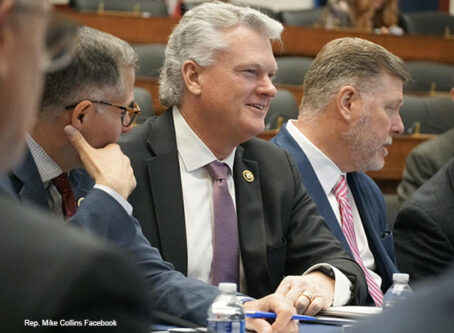Teamsters lauds FMCSA’s efforts on rest break rules
The International Brotherhood of Teamsters is applauding the FMCSA for soliciting petitions for waivers from its previous decisions to preempt meal and rest break rules in California and Washington.
“FMCSA Administrator Robin Hutcheson is taking steps in the right direction by accepting applications for waiver petitions,” Teamsters General President Sean M. O’Brien said in a statement. “States should have the freedom to protect motorists and workers by implementing stronger meal and rest break requirements for professional drivers. This prevents tragedy – not just for commercial vehicle operators, but for everyone who uses our highways.”
On Aug. 14, the Federal Motor Carrier Safety Administration published a notice in the Federal Register that announced the agency will consider petitions for waivers and will accept the petitions through Nov. 13.
California’s meal and rest break laws generally require employers to provide employees with an off-duty 30-minute break for every five hours worked and a 10-minute off-duty break for every four-hour period. Washington’s meal and rest break laws are similar.
In 2018, FMCSA granted petitions from the American Trucking Associations and the Specialized Carriers and Rigging Association to preempt California’s meal and rest break rules because they were “incompatible” with federal regulations. In 2020, FMCSA granted a similar petition from the Washington Trucking Associations in regard to the state’s break rules.
Previous lawsuit
Responding to FMCSA’s decision to preempt California law in 2018, the Teamsters petitioned the U.S. Court of Appeals for the Ninth Circuit. The group argued that FMCSA didn’t have the authority to preempt the state’s law.
In January 2021, the Ninth Circuit upheld FMCSA’s determination. The court said the agency “reasonably determined that a state law on commercial motor vehicle safety was one that imposes requirements in an area of regulations that is already addressed.”
As part of its opinion, the court referenced the Motor Carrier Safety Act of 1984, which says a state may not enforce a law or regulation on commercial motor vehicle safety that the Secretary of Transportation decides may not be enforced.
“We appreciate petitioners’ arguments in favor of their preferred approach to governance in the area of commercial motor vehicle safety,” the three-judge panel wrote. “But in this case, petitioners’ objections are ultimately as much to the statute Congress drafted as they are to the FMCSA’s preemption determination. Under the principles that govern our evaluation of the agency’s decision, the petitions for review must be denied.”
ATA opposition
While the Teamsters lauded FMCSA’s request for petitions, the American Trucking Associations opposed the effort.
“Federal law already mandates rest breaks for drivers,” ATA said in a statement. “Unnecessary and duplicative state laws are not grounded in safety and have been primarily enforced via private lawsuits designed to extort the trucking industry. Opening the door to this spurious litigation once again would impair the safe and efficient movement of interstate goods. ATA is fully prepared to oppose this effort that would result in a confusing patchwork of regulations. We will leverage all of our federation’s resources to stop this in its tracks.”
Waiver petitions
FMCSA asked for waiver petitions to address the following topics:
- Has the enforcement of a state’s meal and rest break laws impacted the health and safety of commercial motor vehicle drivers?
- Would enforcement of state meal and rest break laws as applied to interstate commercial motor vehicle drivers exacerbate the existing truck parking shortages or other dangers to drivers and the public?
- Would enforcement of state meal and rest break laws dissuade motor carriers from operating in that state? LL









